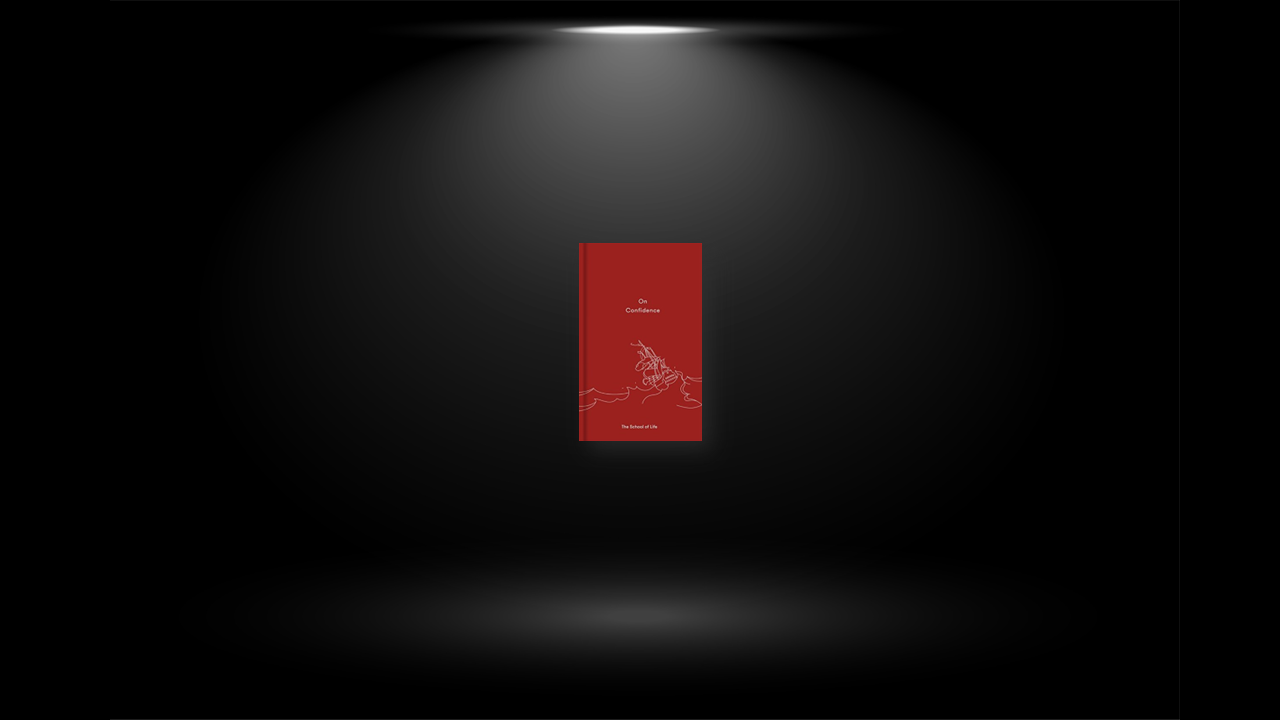Idiocy and Confidence
In a foreign city, we grow reluctant to ask anyone to guide us to the nice bars, because they might think us an ignorant, pitiable lost tourist. We might long to kiss someone, but never let on, in case they dismiss us as a predatory loser. At work, we don’t apply for a promotion, in case the senior management deems us delusionally arrogant. In a concerted bid never to look foolish, we don’t venture very far from our cocoon. Consequently – from time to time, at least – we miss out on the best opportunities of our lives.
At the heart of our underconfidence is a skewed picture of how dignified a normal person can be. We imagine that it might be possible, after a certain age, to place ourselves beyond mockery. We trust that it is an option to lead a good life without regularly making a complete idiot of ourselves.
We grow timid when we allow ourselves to be overexposed to the respectable sides of others. Such are the pains people take to appear normal, we collectively create a phantasm that suggests that normality might be possible, and this is problematic for everyone.
Once we learn to see ourselves as already, and by nature, foolish, it won’t matter so much if we do one more thing that might look stupid. The person we try to kiss could indeed think us ridiculous. The individual from whom we asked directions in a foreign city might regard us with contempt. But if these people did so, it wouldn’t be news to us. They would only be confirming what we had already gracefully accepted long ago: that we, like them – and every other person on the earth – are a nitwit. The risk of trying and failing would have its sting substantially removed. The fear of humiliation would no longer stalk us in the shadows of our minds. We would grow free to try things by accepting that failure was the norm. And every so often, amid the many rebuffs we would have factored in from the outset, it would work: we’d get a kiss, we’d make a friend, we’d get a raise.
The road to greater confidence begins with a ritual of telling oneself solemnly every morning, before heading out for the day, that one is a muttonhead, a cretin, a dumbbell and an imbecile. A few more acts of folly should, thereafter, not matter very much.
Impostor Syndrome
The impostor syndrome has its roots far back in childhood – specifically in the powerful sense children have that their parents are very different from them. To a four-yearold, it is incomprehensible that their mother was once their age and unable to drive a car, tell the plumber what to do, decide other people’s bedtimes and go on trips with colleagues. The gulf in status appears absolute and unbridgeable. The child’s passionate loves – bouncing on the sofa, Pingu, Toblerone – have nothing to do with those of adults, who like to sit at a table talking for hours and drinking beer that tastes like rusty metal. We start out in life with a very strong impression that competent and admirable people are not like us at all.
This childhood experience dovetails with a basic feature of the human condition. We know ourselves from the inside, but others only from the outside. We are aware of all our anxieties and doubts from within, yet all we know of others is what they happen to do and tell us – a far narrower and more edited source of information.
The solution to the impostor syndrome lies in making a crucial leap of faith: that others’ minds work in much the same way as ours do. Other people must be as anxious, uncertain and wayward as we are.
Making a leap of faith around what other people are like helps to humanise the world. Whenever we encounter a stranger, we are not really encountering such a person; we are encountering someone who is in basic ways very much like us, despite surface evidence to the contrary. Therefore, nothing fundamental stands between us and the possibility of responsibility, success and fulfilment.
Trust in the System
When we take our ideas out into the world, there is no more common response than to hear a ‘no’ in return.
We develop a proposal at work that seems pretty good to us. We do some research, put together strategic options and hand it to a senior colleague who agrees to give it some thought. Then, after six weeks, a message comes back: the firm is grateful for the suggestion, but won’t be taking the plan further. There is no very precise explanation, just a general view: the timing is wrong; it doesn’t fit with general policy; it’s not the kind of thing that’s right for the team. We may be disappointed, but we take the comments on the chin. Our suggestion couldn’t really have been a good one. Perhaps we should be more careful in the future.
In big and small instances, we cave in to the judgements of The System, beside whose might and invincibility our own hopes seem feeble and disposable. The root of our underconfidence is a touching, but ultimately hugely dangerous, degree of trust – a legacy of times in our lives when those in charge had our best interests in mind and took the time to assess every one of our needs. When a parent told us we couldn’t use the computer in our bedroom or that it wasn’t advisable for us to go on the school trip to Spain, we could trust that they weren’t being merely mean or unimaginative; they were the bearers of bad news out of mature benevolence.
From such experiences, we may develop a more generalised belief in the open-heartedness of those who frustrate us. The senior manager, business advisor or sales assistant are, we feel, in their own ways as careful about their judgements as our own families. But this, of course, can’t be true.
Children have great trouble imagining the inner lives of those in authority. A young school child can be deeply puzzled to see their teacher on a Sunday morning at the shops or jogging round the park. In their minds, this mighty person is simply and exclusively ‘the teacher’. Their whole life (the child thinks) revolves around the classroom and the large desk they stand behind. They have no history; they couldn’t have been a child themselves; they have no problems or frustrated dreams or wakeful nights. Our childish selves struggle to flesh out the reality of adult existence.
However, maturity means, ideally, going from the myth of a person, however high their status in a system, to a full recognition of their humanity. We finally pay others a strange but valid compliment when we accept them as versions of the same complex and imperfect creatures we know ourselves to be. This may feel like disenchantment, but it is also a crucial vehicle for a future in which the word ‘no’ seems just a little less impartial and beyond question.


